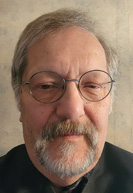Subscriber Benefit
As a subscriber you can listen to articles at work, in the car, or while you work out. Subscribe NowWhen a Marion Superior Court jury awarded more than $42 million to an Avon motorcyclist severely injured in a traffic accident, Courtroom View Network was in the room to capture the proceedings.
While the gavel-to-gavel coverage offered by the niche streaming service is still a bit unusual in Indiana, video cameras in the courtroom are becoming increasingly common since the Indiana Supreme Court last May gave local judges the discretion to decide whether to allow media broadcasting of court proceedings.
Broadcasters and court officials generally report positive experiences under the new rules, with the media gaining new access to capture emotional moments in the courtroom and the judicial system projecting a greater sense of openness through televised and streamed courtroom proceedings.
But the biggest test of this new relationship between the media and Indiana’s courts likely will come this May when one of highest profile murder cases in Indiana in decades goes to trial.
The case of Richard Allen, charged in the slayings of two teenage girls who had gone missing after a day hike near their hometown of Delphi, is drawing attention from national news outlets such as CNN, Court TV, NewsNation and others.
The judge in the case already has denied requests from at least two Indiana television stations to record the trial set for May 13, and she did not immediately respond to an email query from Indiana Lawyer about whether she would be open to other requests.
Indiana’s plunge
The Indiana Supreme Court opened the state’s local trial courts to television and still cameras last May when it gave trial court judges the discretion to decide on a case-by-case basis whether to allow them.
The new rules removed Indiana from an ever-dwindling list of states that ban or severely restrict cameras in the courtroom, leaving Delaware, Louisiana, Oklahoma and Pennsylvania with the most restrictive policies, according to the Free Speech Center at Middle Tennessee State University.
“Trial court judges are in the best position to determine how to balance the importance of transparency while protecting the rights of people involved in a court matter,” Indiana Chief Justice Loretta H. Rush said in a news release announcing the rules.
Over the past 11 months, dozens of trial court proceedings have been recorded by media cameras. It’s difficult to know precisely how many because each county and judge have set up their own processes to receive and act on media requests for camera coverage.

Dave Arland, executive director of the Indiana Broadcasters Association, said Indianapolis television stations have teamed up several times in recent months to provide video coverage of high-profile cases.
They include the trial and sentencing of three people for the killing of Indianapolis businessman and former Indiana University football player Chris Beaty, who died during the local unrest following the murder of George Floyd by a white police officer in Minneapolis.
Courtroom video coverage also was allowed in hearings for: Mylik Hill, sentenced to 87 years for the attempted murder of IMPD officer Thomas Mangan; Orlando Mitchell, awaiting trial in the strangling death of Marion County Sheriff’s deputy John Durm; and Elliahs Dorsey, whose sentencing last week in the death of IMPD officer Breann Leath was strongly criticized by Indianapolis law enforcement officials as too lenient.
In those cases, the stations placed one “pool” camera in the courtroom in an effort to be unobtrusive and then shared the video among all their newscasts.
The new rules also have allowed national niche streaming services to record Indiana trials.
Courtroom View Network, which covers high-stakes civil litigation as a training tool for litigators and law students, provided gavel-to-gavel streaming of its first Indiana case last month.
In that case, a Marion Superior Court jury ultimately awarded $42 million to motorcyclist Christopher Dugan, who was injured in a crash with a Tesla Motors-owned pickup truck.
CVN reporter David Siegel said he is grateful for Indiana’s new courtroom policy and sees camera access as a positive not only for journalists, but for the public to hold their own elected officials accountable.
“We think that having more reporters covering trials like this, providing the public more analysis, more information, that provides important transparency, and we think that that provides more trust for the public, more understanding on how its judicial system operates,” he said.
Arland noted that broadcasters also have had their share of denials from Hoosier judges who don’t want a camera in court proceedings. But, overall, he said broadcasters are “pleased with the access that judges are giving to cameras in the courtroom – providing sunshine to the important judicial branch of government.”

Marion Superior Court Judge Mark Stoner, who spoke to Indiana Lawyer before his much-criticized sentencing of Dorsey, said the willingness of Indianapolis television stations to work together and use a “pool” camera smoothed the process for media coverage in his courtroom.
“That made it very easy for us to avoid confusion and deal with multiple media outlets,” Stoner said.
Stoner generally applauded the media’s handling of the lengthy trial but said a slip-up occurred when the courtroom camera unintentionally captured two jurors on video during the verdict.
The new camera rules set out by the state’s high court explicitly forbid courtroom broadcasts of jurors and minors; juvenile court proceedings; victims of violent offenses, sexual offenses and domestic abuse; attorney-client communications; bench conferences and materials on counsel tables and the judge’s bench.
Stoner said the incident during the Dorsey trial didn’t change his opinion on allowing cameras in the courtroom, but the media’s presence during the trial ultimately led to continuing conversations between the court and news stations on how to approach broadcasting the proceedings in the best way.
He said he believes the high court’s rules will need to be refined over time to better clarify the parameters for media coverage.
Kathryn Dolan, the chief public information officer for the Indiana Supreme Court, recently surveyed media representatives on how they think the new rules are working.
Once the survey results are compiled, she plans to share them with the Indiana Broadcasters Association, the Hoosier State Press Association, Indiana Pro SPJ and the Judicial Conference Community Relations Committee.
“I’d like to know how it’s going from your perspective as we continue to look for outreach and education opportunities for both judges and press,” she wrote in a recent email accompanying the survey. “I believe there are success stories and areas of needed improvement. But I need to hear from you to confirm that.”
Big test to come
The biggest test of the natural tension between the media and Indiana judges over cameras in the courtroom is likely to come next month at the trial of Richard Allen, accused of killing 14-year-old Liberty German and 13-year-old Abigail Williams in 2017.
High interest from the public and national and local media always makes a trial a high-stakes balancing act for judges seeking to protect the rights of people involved in the proceedings while also providing a level of public transparency.
They generally want to avoid frenzied courtroom scenes akin to the Lindbergh baby kidnapping trial of 1935 or the 1995 gavel-to-gavel trial coverage of former football star O.J. Simpson.
In the Allen case, Special Judge France Gull has fielded numerous requests from Indiana television stations, Court TV, NewsNation, and Law and Crime to let cameras capture courtroom proceedings leading up to the trial.
She allowed camera coverage of Allen’s hearing on Oct. 19.
But she has since denied all camera requests for subsequent hearings, at one point citing the “unauthorized filming and broadcasting of pre-hearing activities” on Oct. 19 as a reason, according to the court docket.
When outlining rules denying camera access and detailing other courtroom decorum for the public and the press at recent court hearings, the court’s docket said they were crafted to “ensure the integrity of the proceedings, to protect the Defendant’s constitutional rights for due process, to ensure the safety of the parties and the public, and to permit public access to criminal proceedings.”
On March 21, Indiana Lawyer asked Gull via email to discuss what comes into play when deciding whether or not to allow cameras in her courtroom and what kind of experiences she had when participating in a pilot camera project that led the Supreme Court to change its policy last year.
She replied the next day, writing: “I’m sorry but I have no time available for such a discussion.” On that same day, the court docket shows she denied requests from Fort Wayne’s WPTA-Channel 21 and WANE-Channel 15 to have cameras in the courtroom for Allen’s May 13 trial.
IL followed up with an email, asking the judge if those denials meant that she had decided to deny all such requests for the trial.
She did not immediately respond, and some broadcasters are still hoping the judge can find suitable conditions to allow for camera coverage.
“I cannot second-guess the judge, since Indiana law leaves the matter of cameras in the courtroom up to each judge,” said Arland of the Indiana Broadcasters Association. “Naturally, we are hopeful that at least one pool camera (and related audio) will be permitted in the courtroom of a case with such intense local and national interest.”•
Please enable JavaScript to view this content.


Special Judge France Gull won’t allow cameras because Court TV screwed up and violated the guidelines at an earlier hearing. Concerned local citizens will not be able to watch because of a grandstanding cable network.